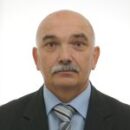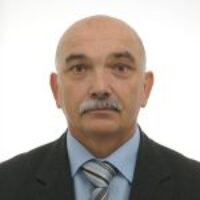Komitet Inżynierii Materiałowej i Metalurgii
The Materials Engineering and Metallurgy Committee of the Polish Academy of Sciences was established in 2019 due to joining of the Committee on Materials Science and Committee on Metallurgy. The scientific interest of the Committee covers such areas as physical, chemical and structural phenomena, relationships between chemical composition, technology and properties, as well as criteria for material selection for specific applications, theoretical and practical aspects of the science of metals and other materials, including plastic working, foundry, metallurgy, extraction metallurgy and modeling processes with their virtualization.
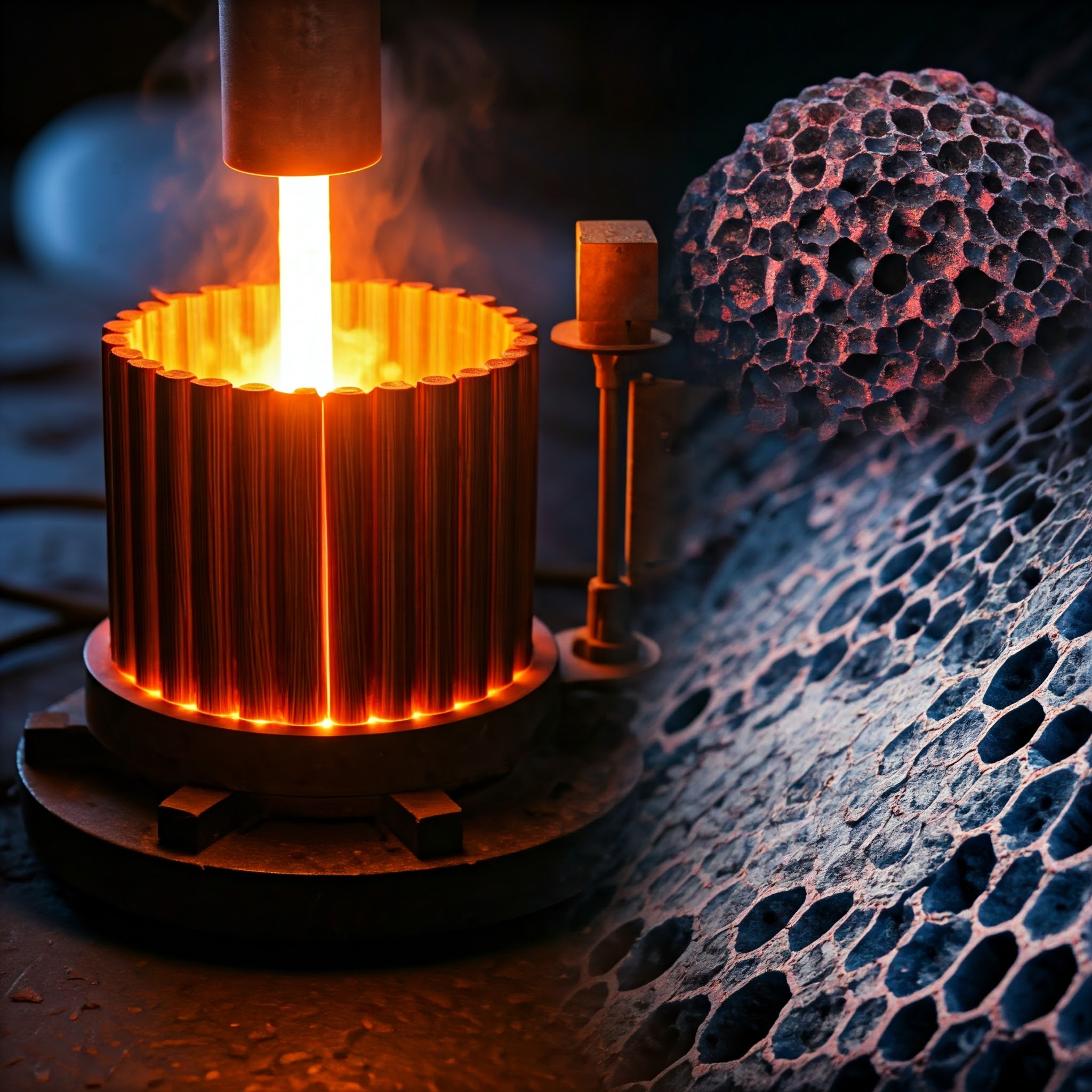
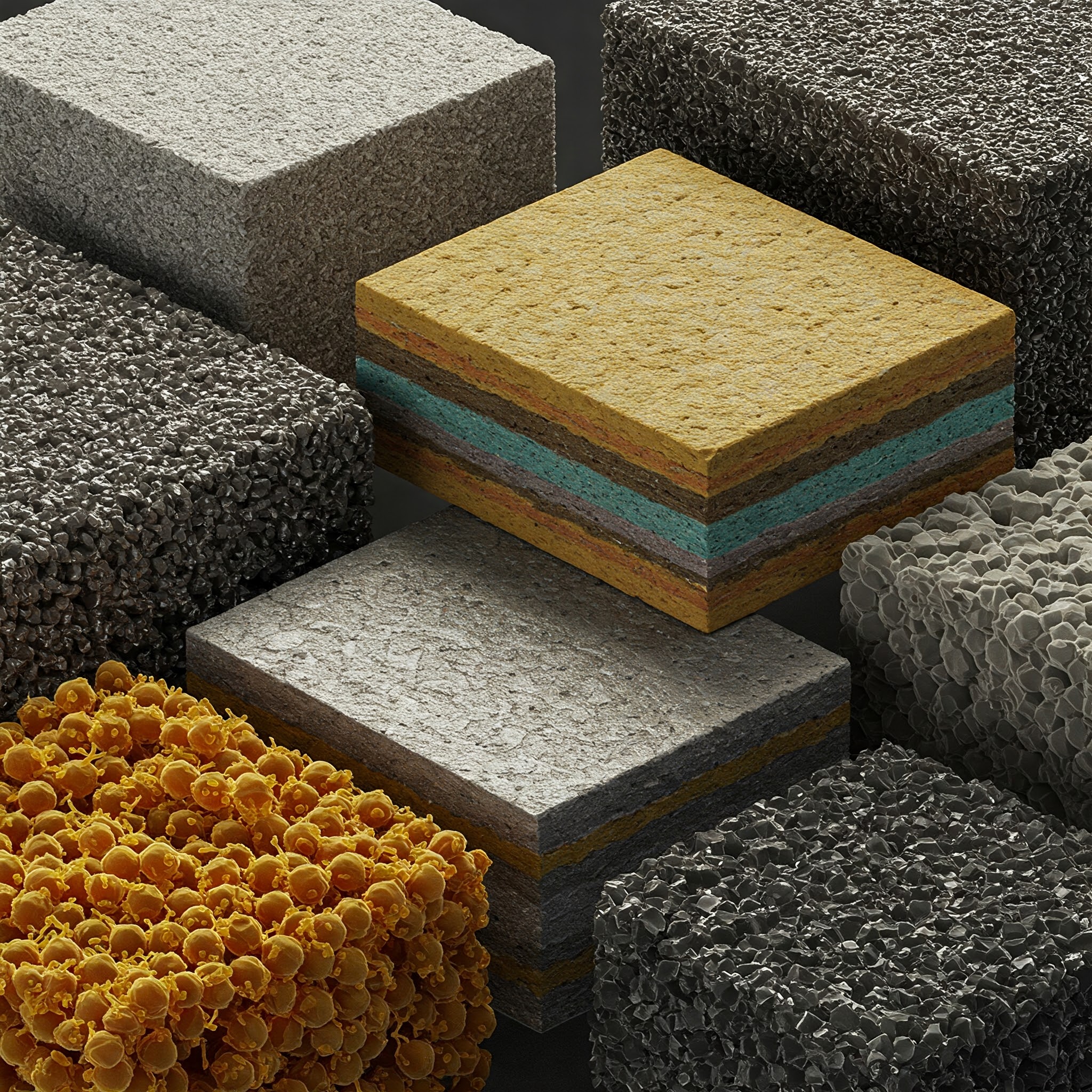
The main areas of interest are metallic materials, ceramics, polymers, organic materials, composites, raw materials, including traditional and advanced materials with a high degree of processing, possessing a unique complex of functional properties (gradient, amorphous, ultraporous, biomaterials, 2D materials, nanomaterials, coatings, metallic glasses), biomimetical engineering
Polish Academy of Sciences (PAS), due to the intellectual potential and material base, is obligated to be actively involved in the transformation taking place in the ‘European Research Area’. The important role should meet scientific Committees, national associations of the most prominent experts in the given field, appointed as a result of voting. The increasing level of facilities, wide exchange of experimentation-involved researchers coming from PAS research units, universities, and R&D units should provide the basis for obtaining a “critical mass”, leading to the acceleration and development of the national economy.
There is a need for a new approach and evaluation of the future direction of the development and expansion of the European research market.
One of the main elements of the research strategy in Europe is development of the European Research Area (ERA). The ERA was established at the Lisbon European Council in 2000.
Characteristics of the ERA target forms
- an adequate flow of competent world-class researchers
- research infrastructures
- high-quality research institutions
- effective transfer of knowledge
- well-coordinated programs and research priorities
- opening of the European Research Area to the world
The role of the Committee should be within the role of the advisory, referee and implementation bodies.
The Committee may serve in taking decisions in strategic planning developments in terms of national capacity: technology, materials, diagnostics.
The role of the Materials Science Committee can be defined according to the designation of the “Road Map” including:
- thematic priorities,
- participation of the Committee in determination of a strategy in the area of:
- establishment of research projects
- creation of centers of excellence
- creation of competence centers
- scientific networks
- training programs
- business incubators
Materials Science Committee of the Polish Academy of Sciences with its active approach, may be missing and still not fully apply the elements of high potential opportunities in the following areas:
- combining science and industry
- creation of a database of materials
- analysis of the competitiveness of products in the European market
- entry into advanced technologies and materials
- development of advanced diagnostic materials
- creation of accredited research centers
- integration and concentration of funding sources
- education and training
- promoting small but active research teams
The role of the Materials Science Committee can be very important in achieving a “critical mass” in terms of:
- scientific potential
- technological potential
- educational potential
- scientific use of advanced diagnostic equipment
- launches of advanced materials and modern and economical technologies on the national market
Członkowie Komitetu
-
Prof. dr hab. inż. Andrzej Błędzki
Członek komitetu
-
Prof. dr hab. inż. Boczkowska Anna
Członek komitetu
-
Prof. dr hab. inż. Czupryński Krzysztof
Członek komitetu
-
Prof. dr hab. inż. Garbacz Halina
Członek komitetu
-
Prof. dr hab. Gazda Maria
Członek komitetu
-
Prof. dr hab. Goryczka Tomasz
Członek komitetu
-
Prof. dr hab. inż. Górny Marcin
Członek komitetu
-
Prof. dr hab. inż. Grajcar Adam
Członek komitetu
-
Prof. dr hab. inż. Gronostajski Zbigniew
Członek komitetu
-
Prof. dr hab. Jaroszewicz Leszek, Członek korespondent PAN
Członek komitetu
-
Dr hab. inż. Jedliński Jerzy, profesor uczelni
Członek komitetu
-
Prof. dr hab. inż. Kaczmarek Łukasz
Członek komitetu
-
Prof. dr hab. inż. Karbowniczek Mirosław
Członek komitetu
-
Prof. dr hab. inż. Kata Dariusz
Członek komitetu
-
Prof. dr hab. Kolano-Burian Aleksandra
Członek komitetu
-
Prof. dr hab. inż. Kopia Agnieszka
Członek komitetu
-
Dr hab. inż. Kuc Dariusz, profesor uczelni
Członek komitetu
-
Prof. dr hab. inż. Kulik Tadeusz
Członek komitetu
-
Prof. dr hab. inż. Lewandowska Małgorzata, Członek korespondent PAN
Członek komitetu
-
Prof. dr hab. inż. Lis Jerzy, Członek rzeczywisty PAN
Członek komitetu
-
Prof. dr hab. inż. Łabaj Jerzy
Sekretarz komitetu
-
Prof. dr hab. inż. Madej Łukasz
Członek komitetu
-
Prof. dr hab. inż. Bogusław Major, Członek rzeczywisty PAN
Członek komitetu
-
Prof. dr hab. inż. Mizera Jarosław
Vice Przewodniczący komitetu
-
Prof. dr hab. inż. Morgiel Jerzy
Członek komitetu
-
Dr hab. inż. Moskal Grzegorz, profesor uczelni
Członek komitetu
-
Dr hab. inż. Motyka Maciej, profesor uczelni
Członek komitetu
-
Prof. dr hab. inż. Błażej Skoczeń, Członek korespondent PAN
Członek komitetu
-
Dr hab. inż. Smyrak Beata, profesor uczelni
Członek komitetu
-
Prof. dr hab. inż. Sobczak Jerzy Józef
Vice Przewodniczący komitetu
-
Prof. dr hab. inż. Sobczak Natalia, Członek korespondent PAN
Członek komitetu
-
Prof. dr hab. inż. Sozańska Maria
Członek komitetu
-
Dr hab. inż. Szczerba Maciej, profesor instytutu
Członek komitetu
-
Dr hab. Szybowicz Mirosław, profesor uczelni
Członek komitetu
-
Dr hab. inż. Warzecha Marek, profesor uczelni
Członek komitetu
-
Dr hab. Wojewoda-Budka Joanna, profesor instytutu
Członek komitetu
-
Prof. dr hab. inż. Zieliński Adam
Członek komitetu
-
Prof. dr hab. inż. Zięba Paweł, Członek korespondent PAN
Przewodniczący komitetu
Prezydium
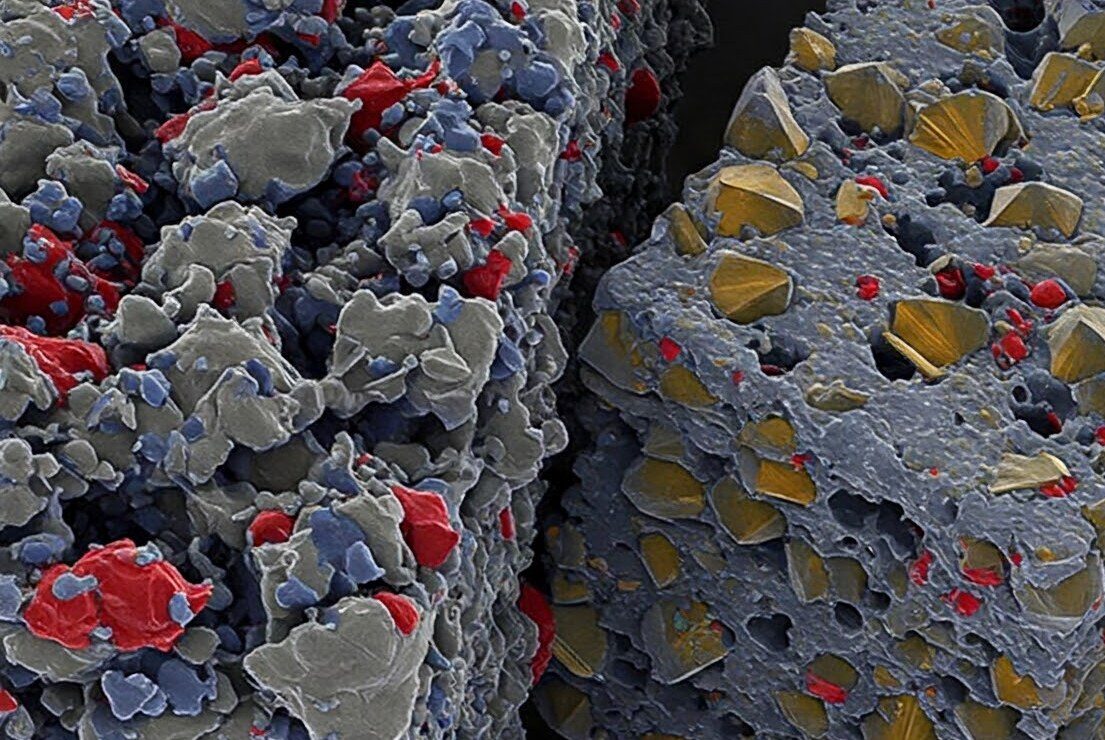
Struktura organizacyjna Komitetu
- Sekcja Metalurgiczna , Prof. dr hab. inż. Mirosław Karbowniczek
- Sekcja Procesów Technologicznych, Prof. dr hab. inż.Zbigniew Gronostajski
- Sekcja Materiałów Metalowych, Prof. dr hab. inż.Tadeusz Kulik
- Sekcja Materiałów Niemetalowych, Prof. dr hab. inż. dr h.c. Andrzej Błędzki
- Sekcja Badań, Charakterystyki Struktury i Właściwości Materiałów, Prof. dr hab. inż. Jerzy Morgiel
Aktualności
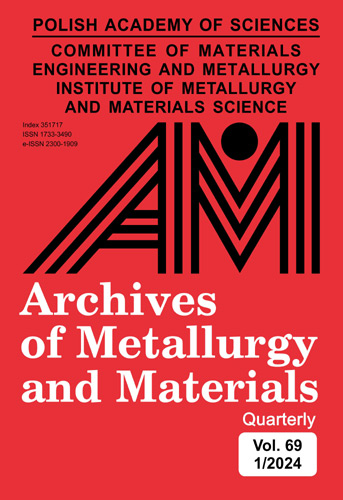
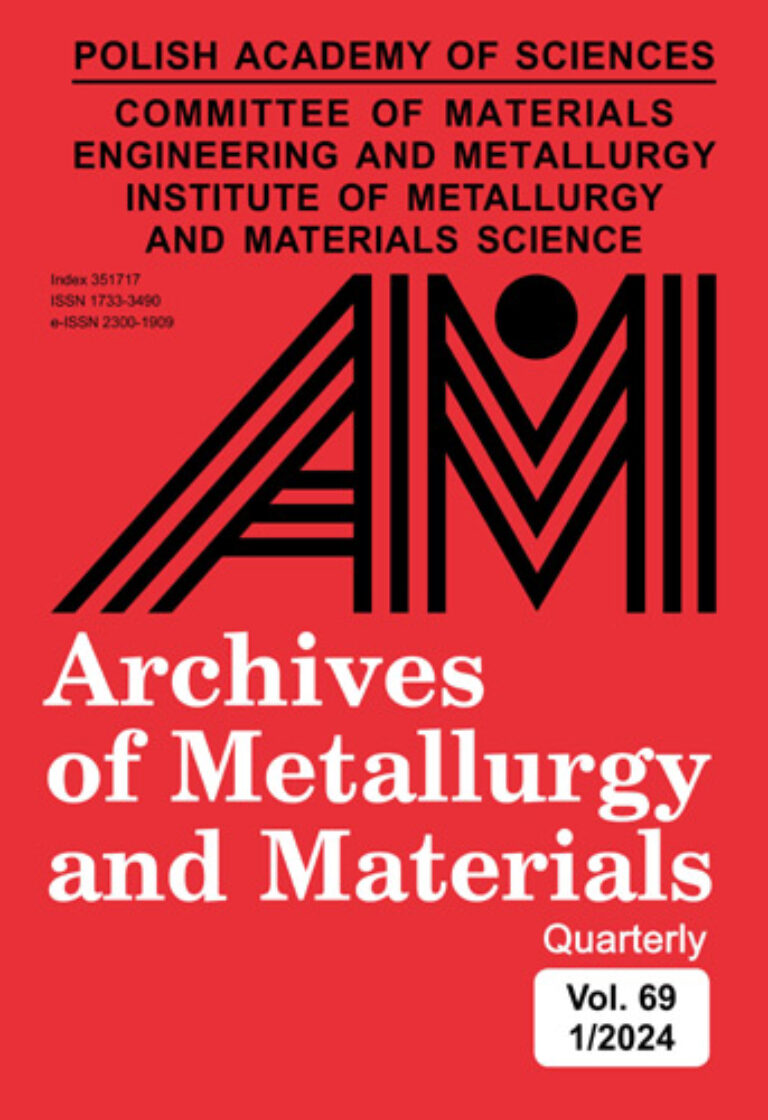
Archives of Metallurgy and Materials
is a quarterly of Polish Academy of Sciences and Institute of Metallurgy and Materials Science of the Polish Academy of Sciences, which publishes original scientific papers and reviews in the fields of metallurgy and materials science. Papers with focus on synthesis, processing and properties of metal materials, including thermodynamic and physical properties, phase relations, and their relation to microstructure of materials are of particular interest.
IMPACT FACTOR 2023: 0.7
CiteScore 2023: 1,20
SNIP 2023: 0,343
SJR 2023: 0,208
Score of the Ministry of Science and Higher Education = 40
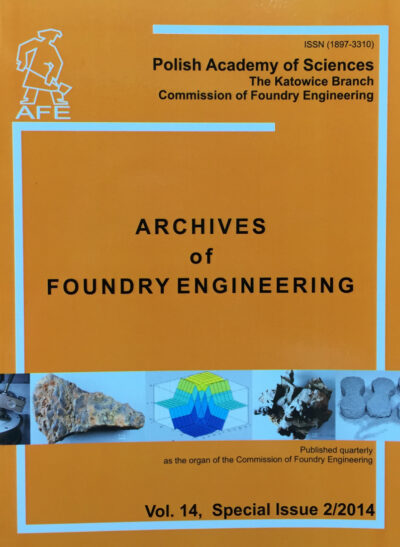
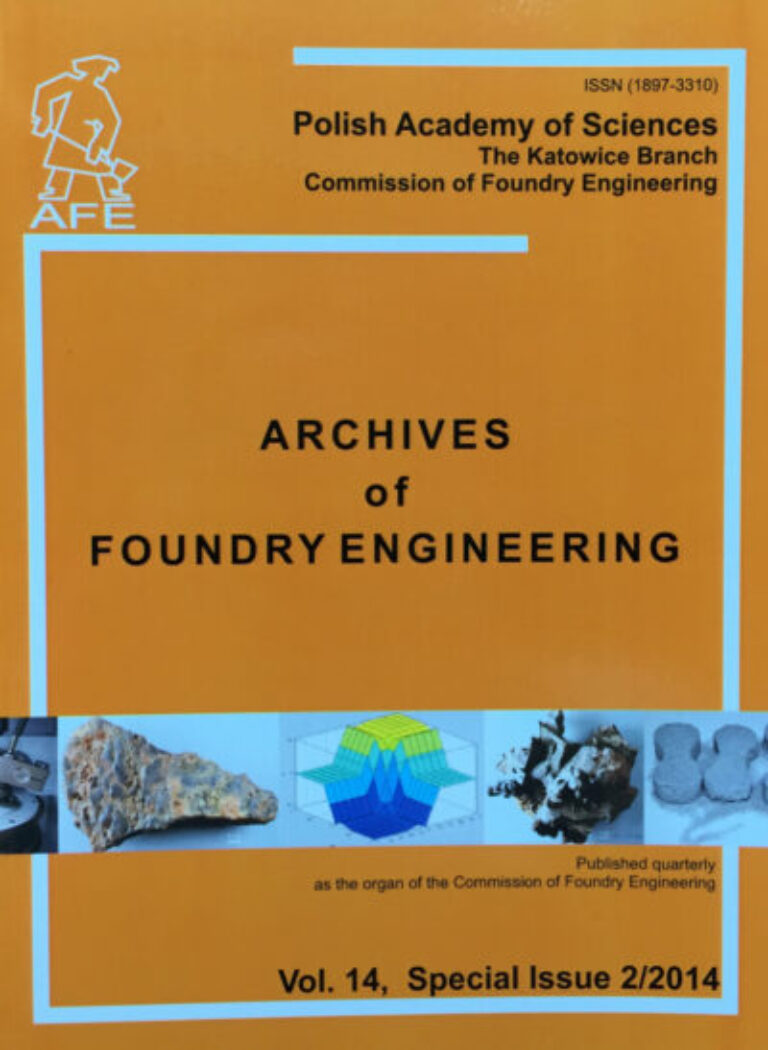
Archives of Foundry Engineering
continues the publishing activity started by Foundry Commission of the Polish Academy of Sciences (PAN) in Katowice in 1978. The initiator of it was the first Chairman Professor Dr Eng. Wacław Sakwa – Corresponding Member of PAN, Honorary Doctor of Czestochowa University of Technology and Silesian University of Technology. This periodical first name was „Solidification of Metals and Alloys” , and made possible to publish the results of works achieved in the field of the Basic Problems Research Cooperation. The subject of publications was related to the title of the periodical and concerned widely understand problems of metals and alloys crystallization in a casting mold. In 1978-2000 the 44 issues have been published. Since 2001 the Foundry Commission has had patronage of the annually published “Archives of Foundry” and since 2007 quarterly published “Archives of Foundry Engineering”. Thematic scope includes scientific issues of foundry industry: Theoretical Aspects of Casting Processes, Innovative Foundry Technologies and Materials, Foundry Processes Computer Aiding, Mechanization, Automation and Robotics in Foundry, Transport Systems in Foundry, Castings Quality Management, Environmental Protection.
IMPACT FACTOR 2022: 0.6
CiteScore metrics from Scopus 2022: 1.2
SCImago Journal Rank (SJR) 2022: 0.197
Source Normalized Impact per Paper ( SNIP) 2022: 0.423
Scoring assigned by the Polish Ministry of Science and Higher Education: 100 points
Do pobrania
Dokumenty i regulaminy
Uchwała Prezydium PAN o utworzeniu Komitetu Inżynierii Materiałowej i Metalurgii PAN
Regulamin trybu wyboru członków i organów komitetów naukowych
Regulamin Komitetu Inżynierii Materiałowej i Metalurgii PAN
Zasady rozliczania delegacji
Kontakt
Prof. dr hab. inż. Paweł Zięba
Prof. dr hab. inż. Jerzy Łabaj
dr inż. Marek Kopyto


